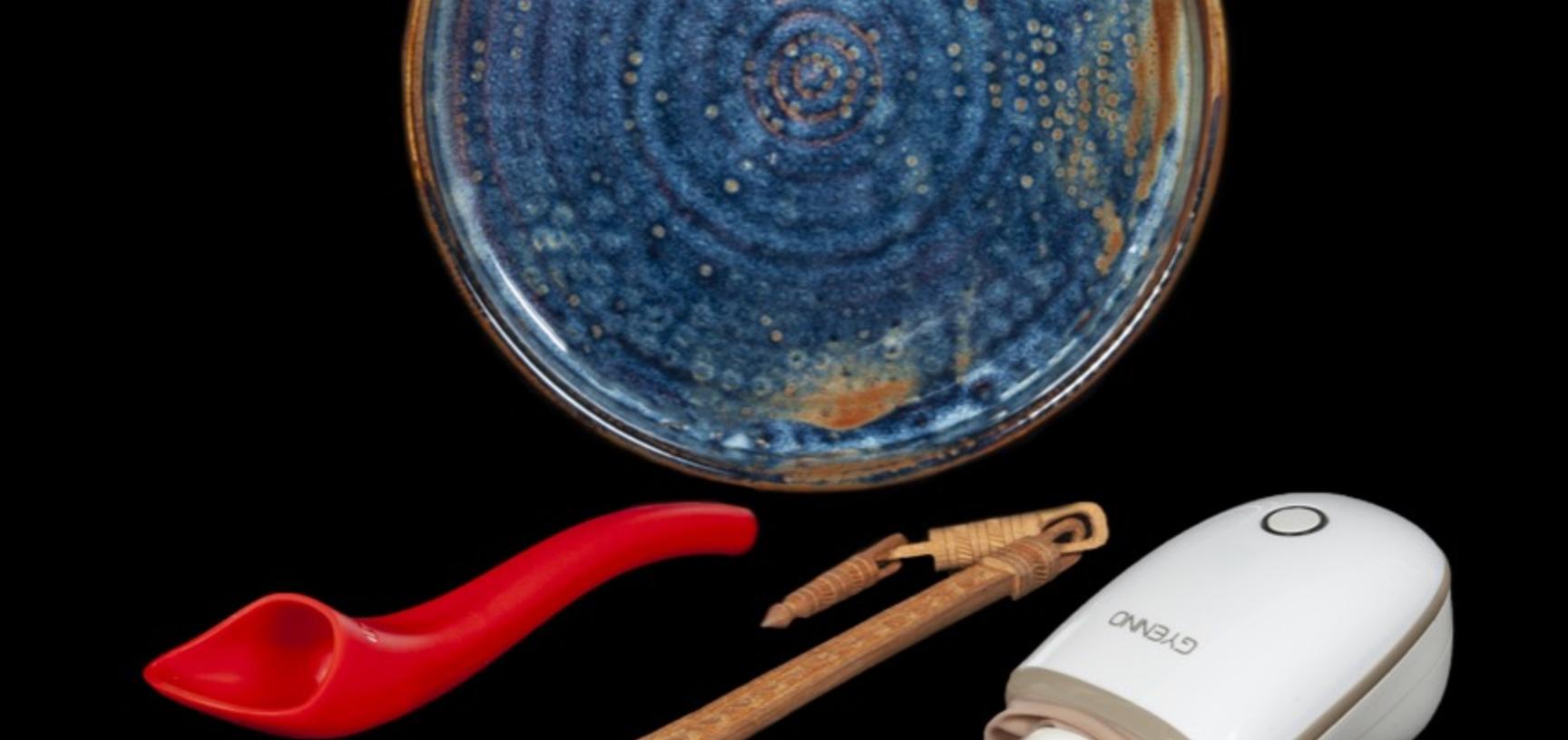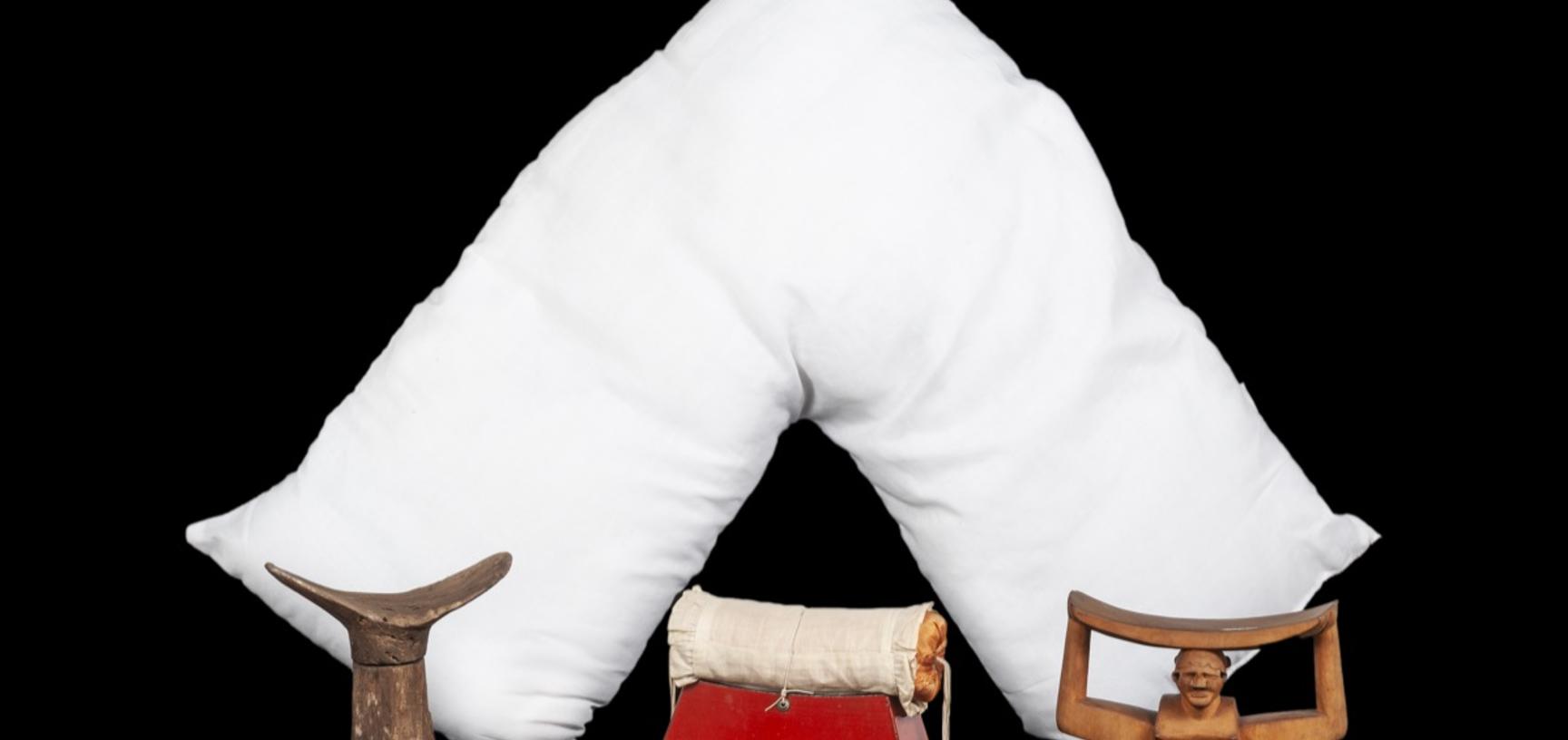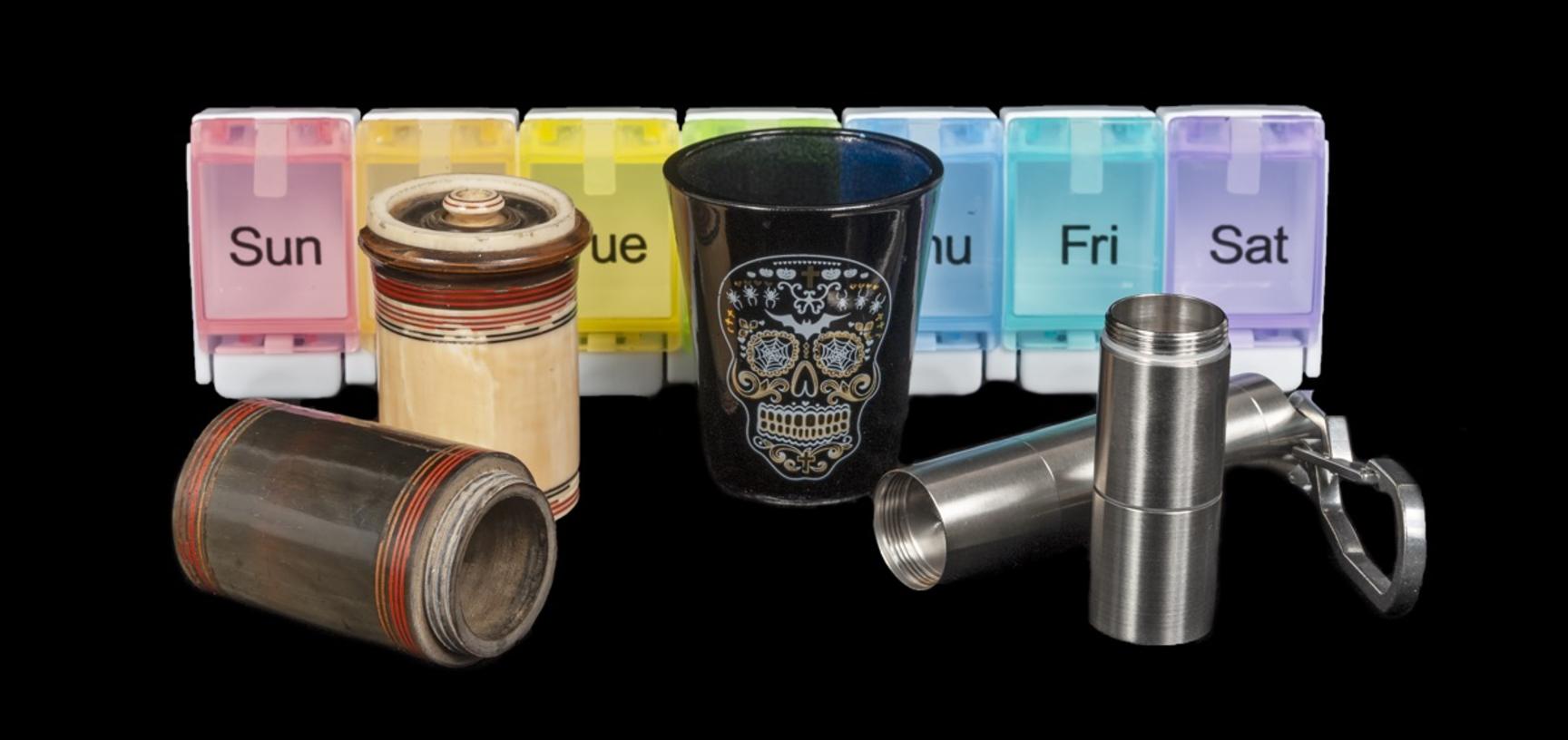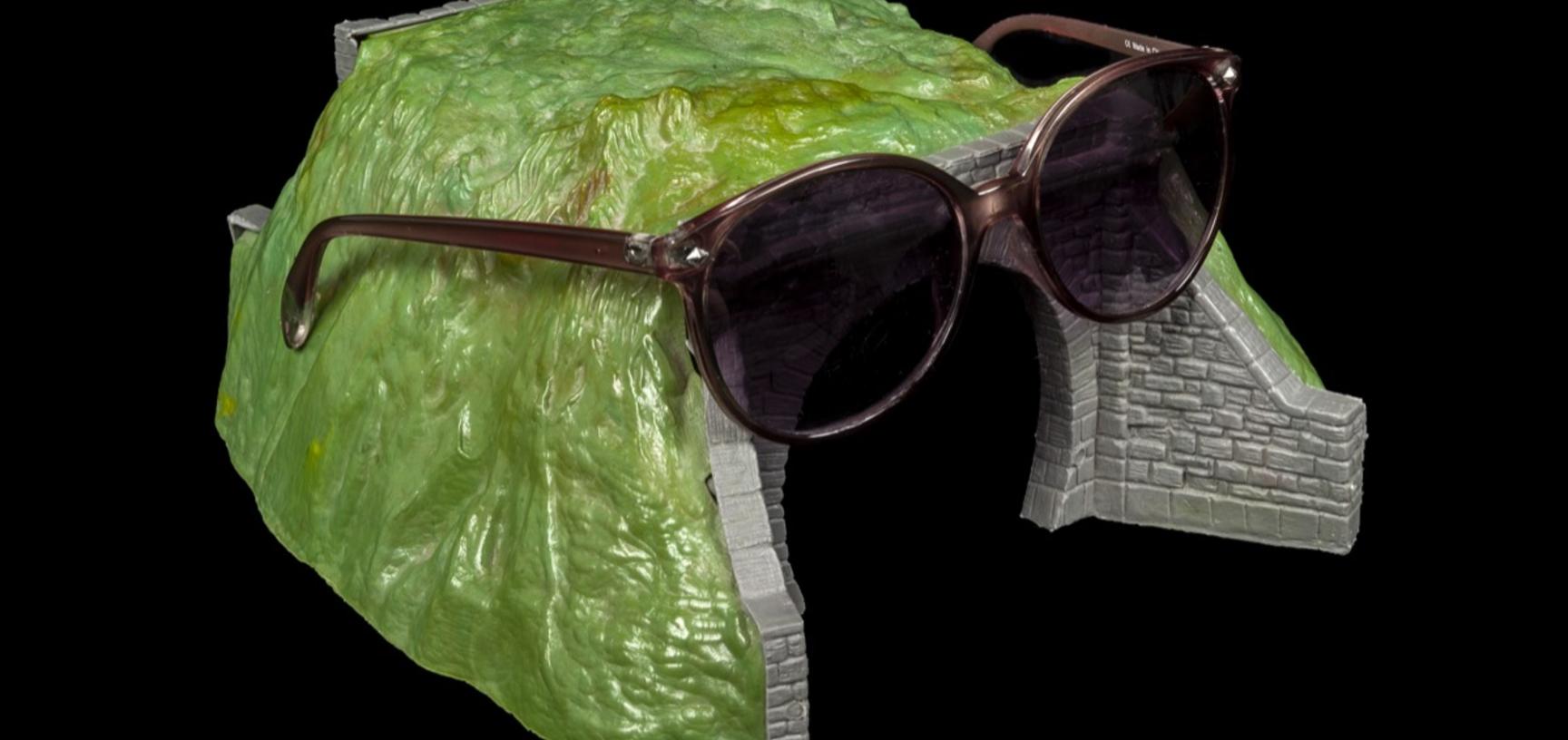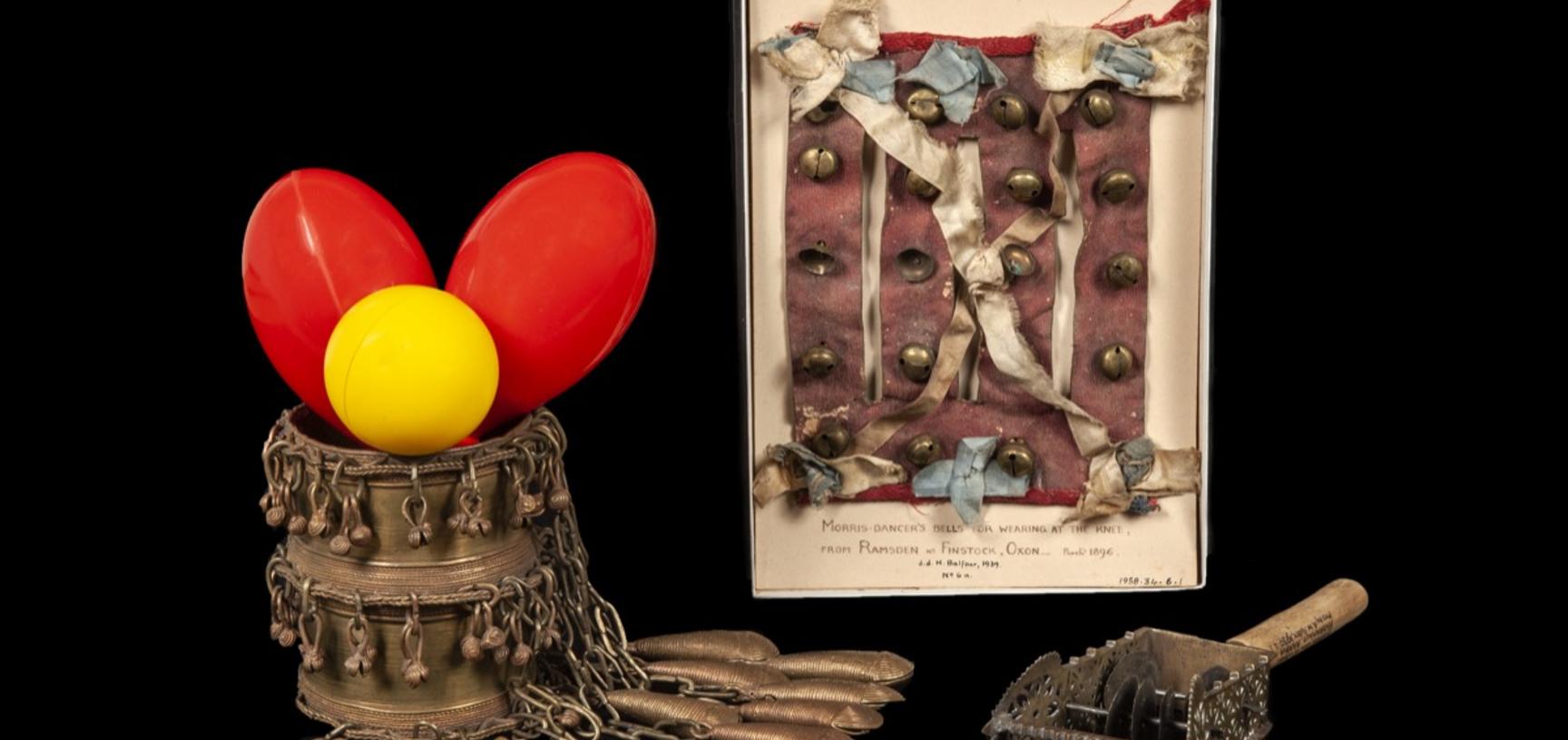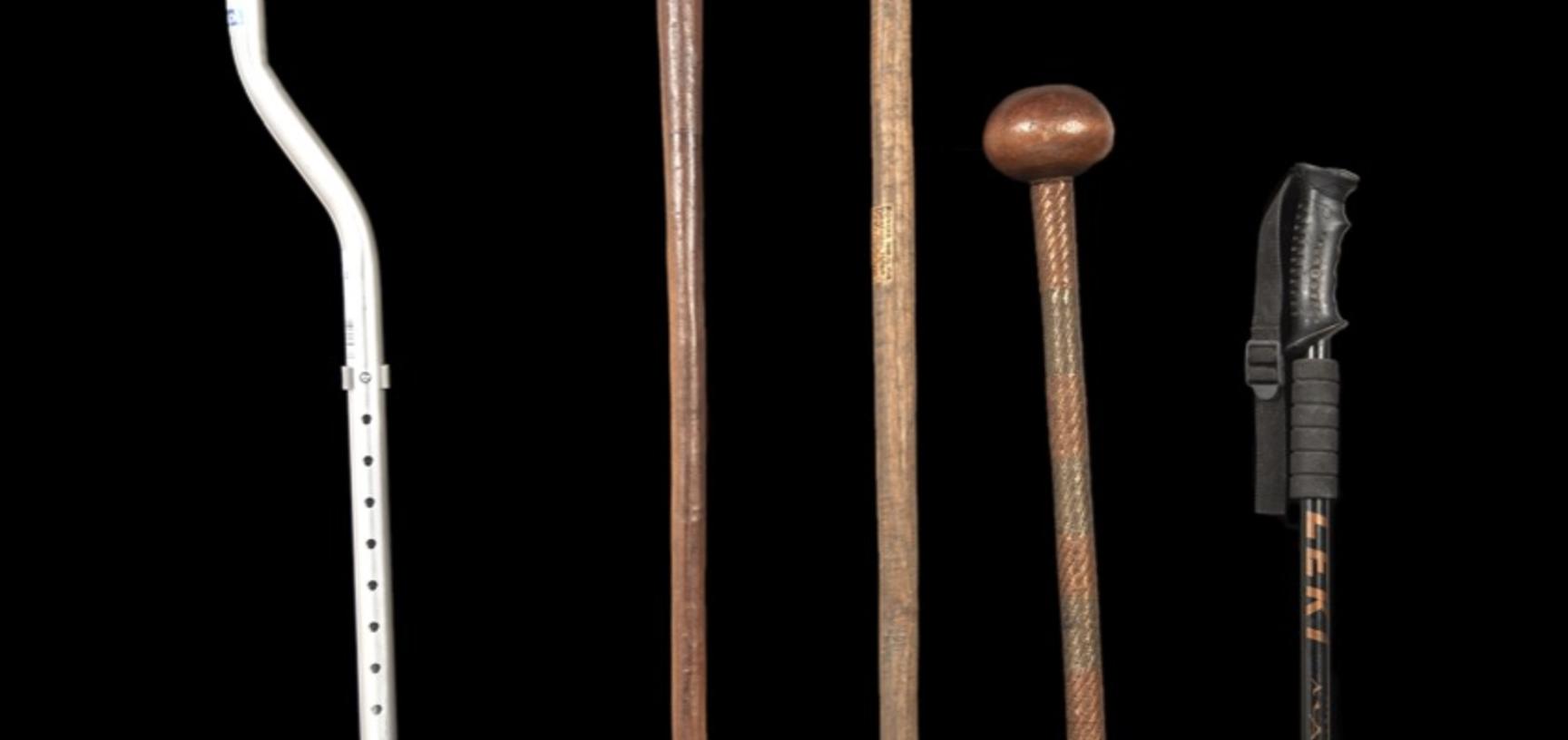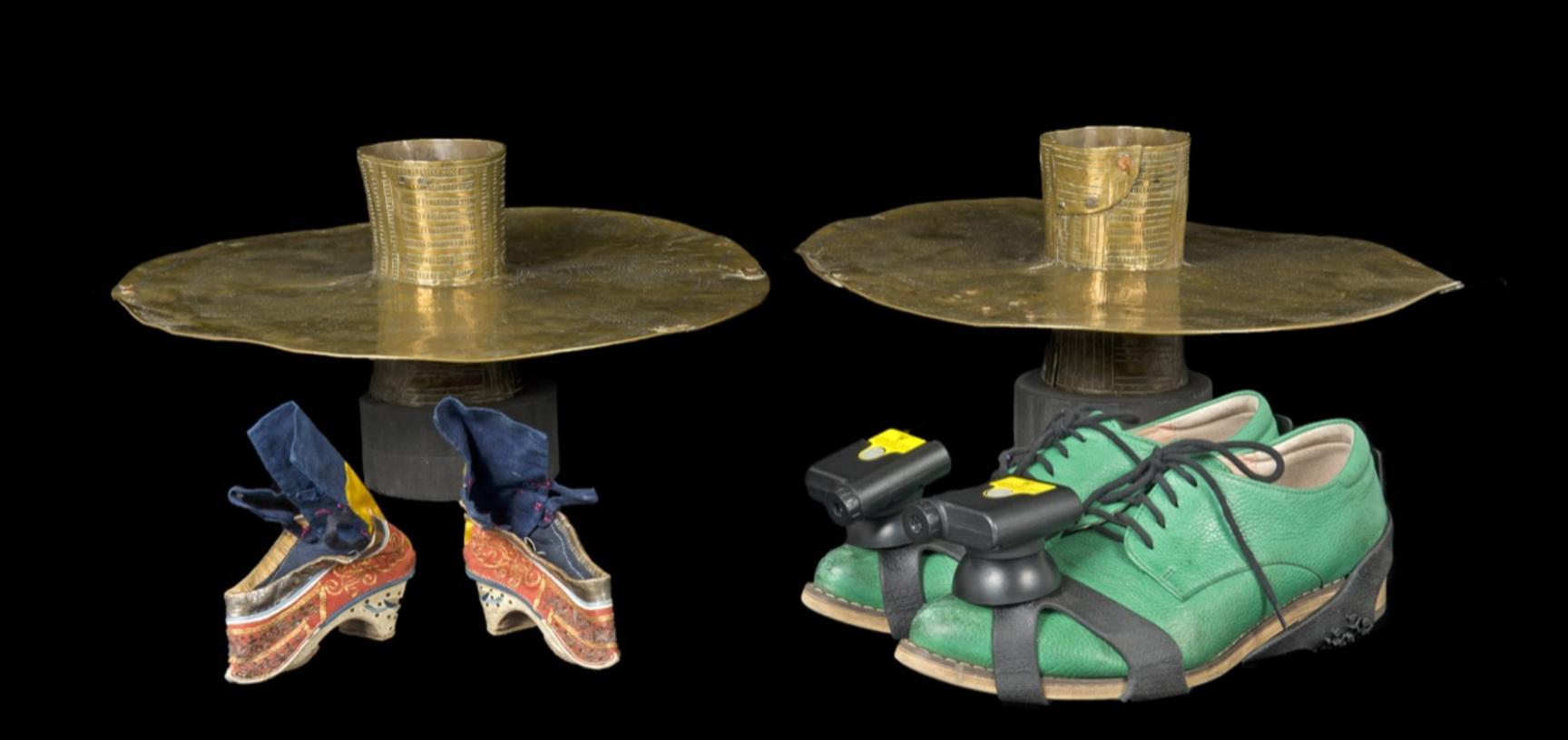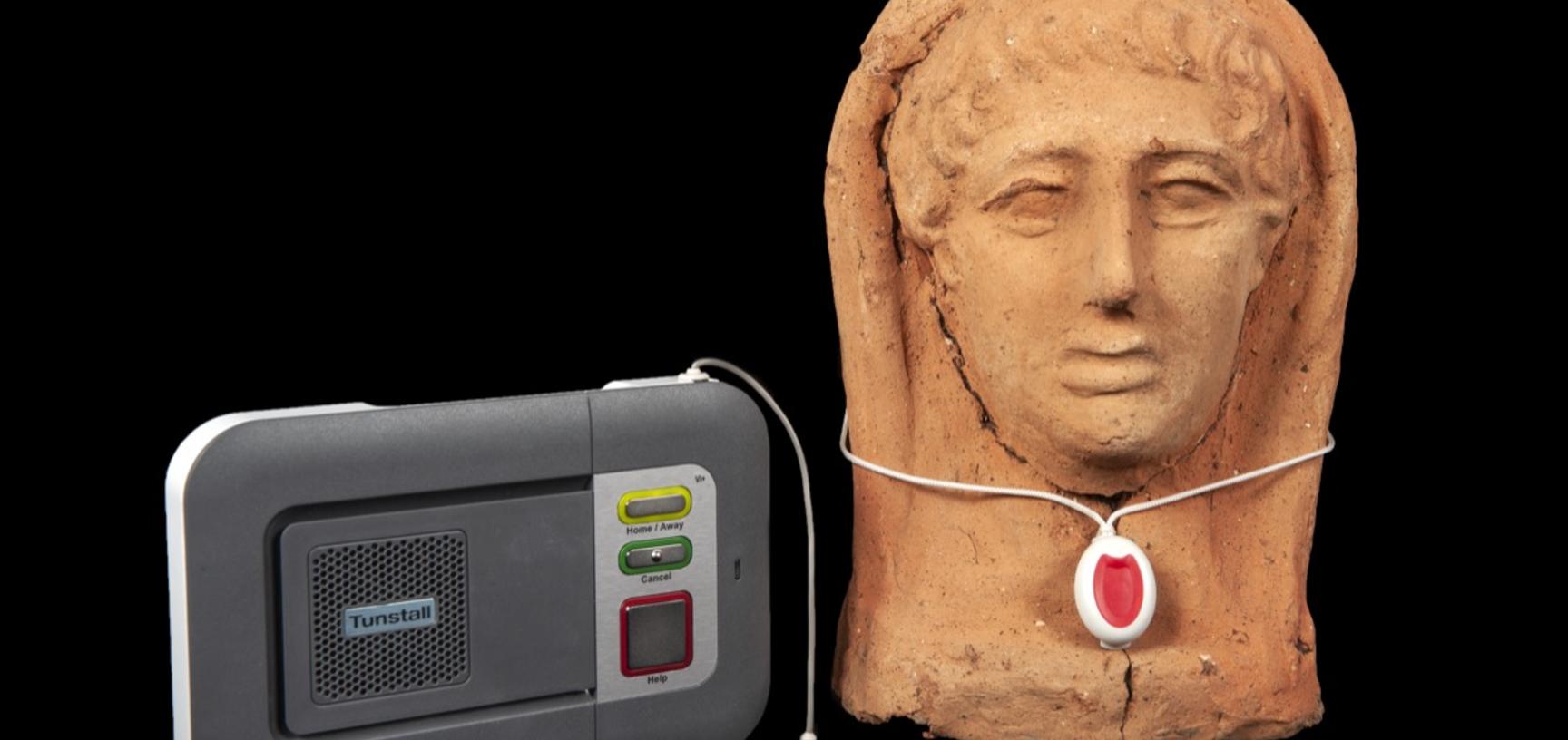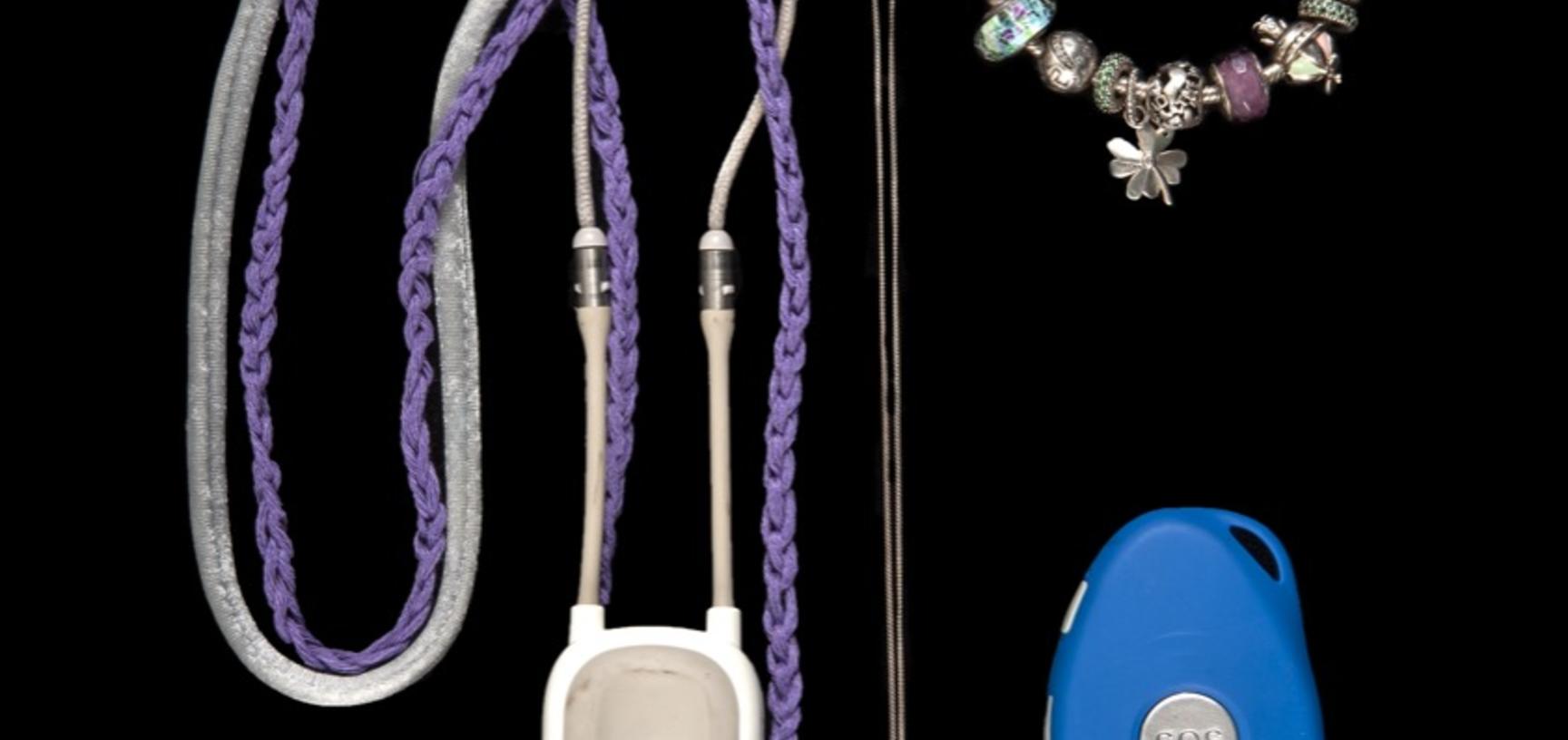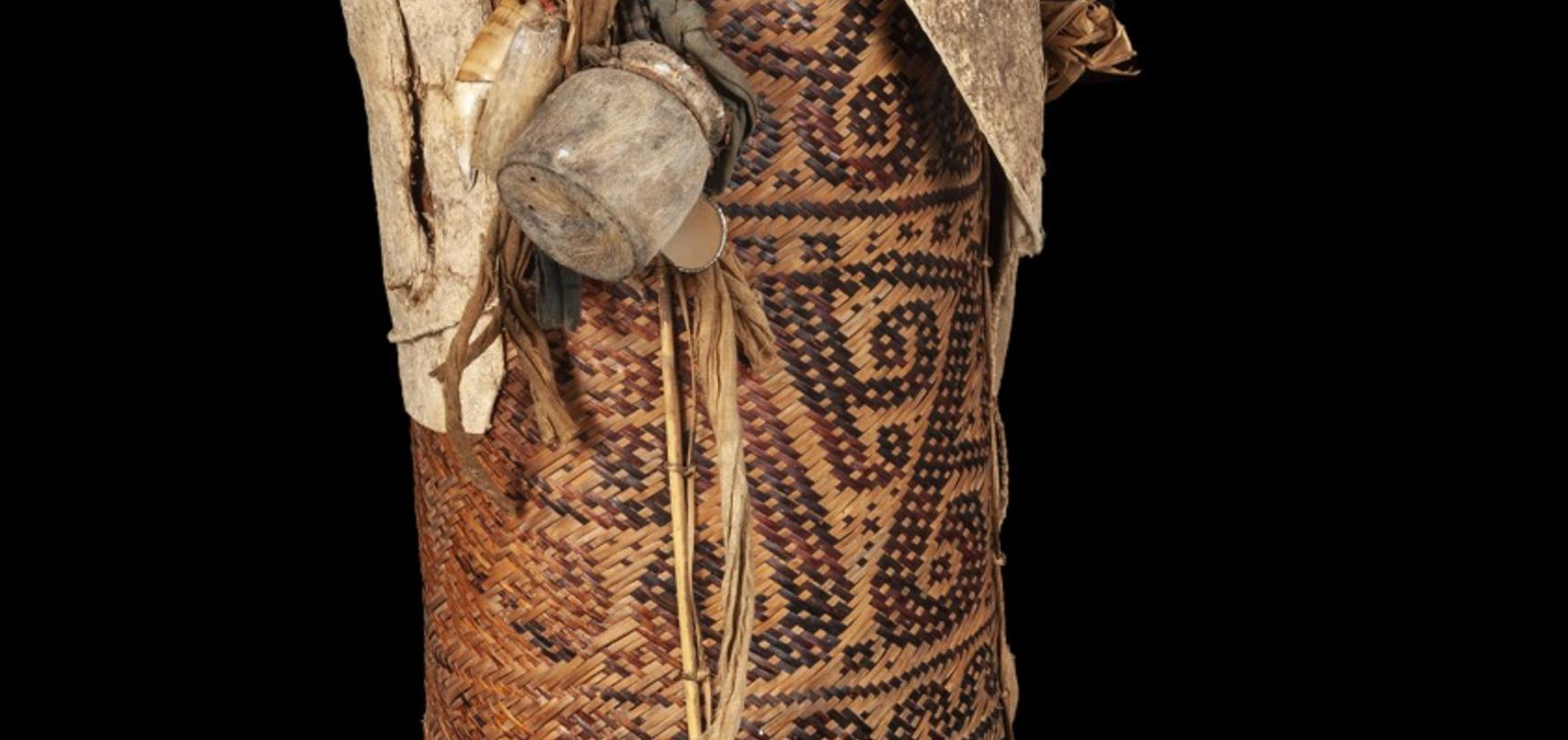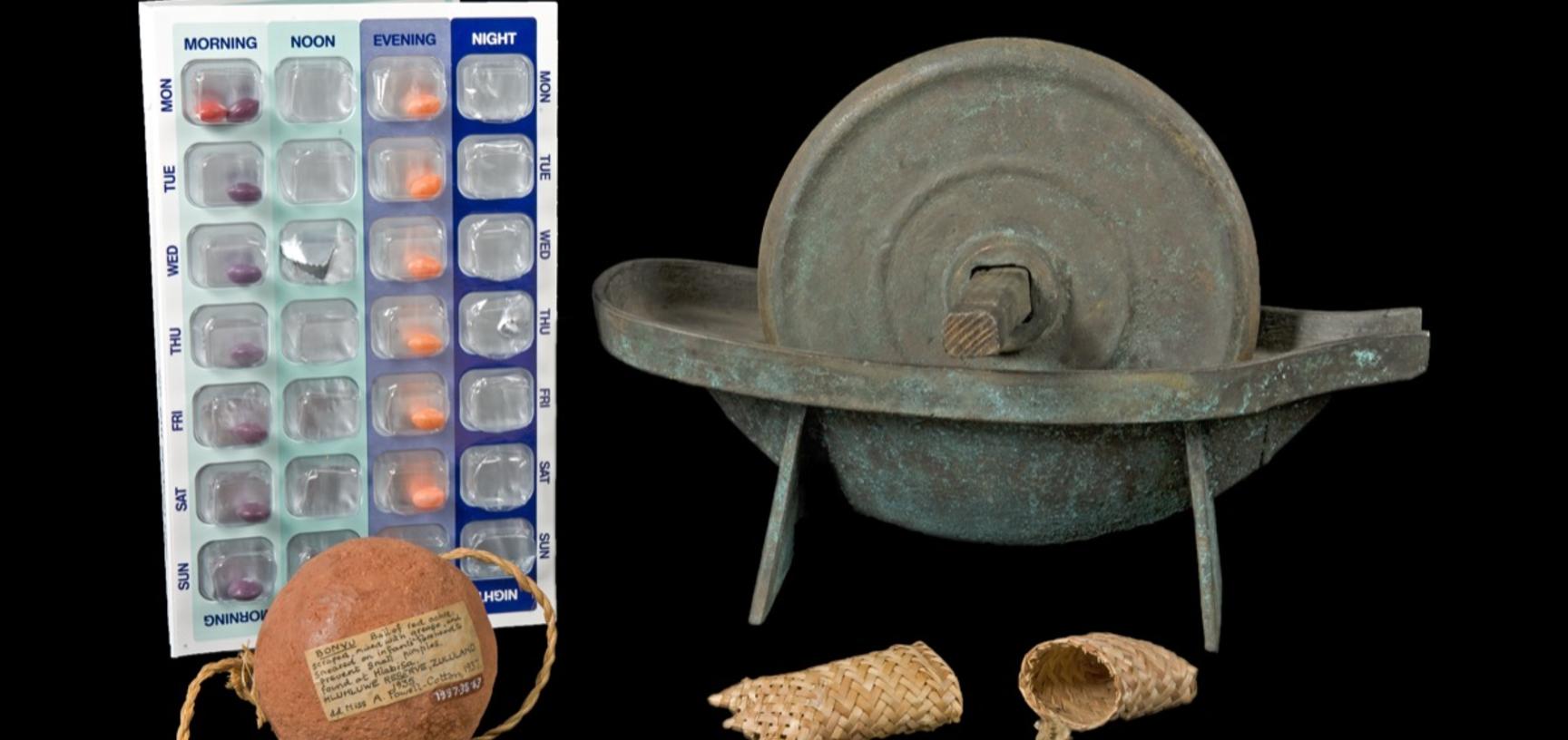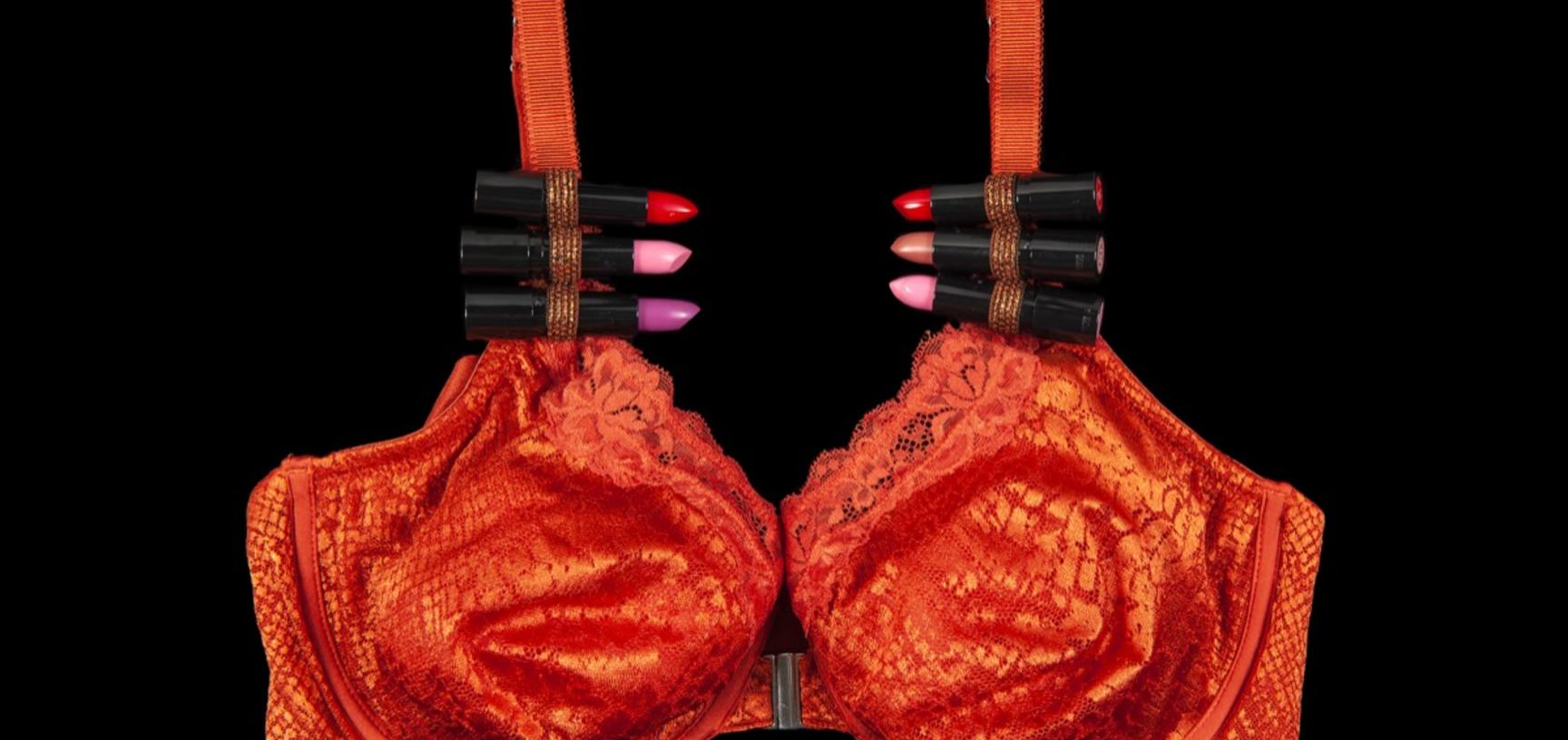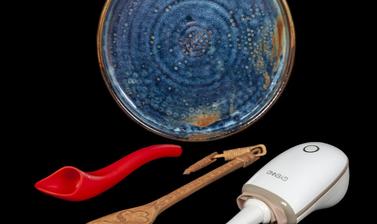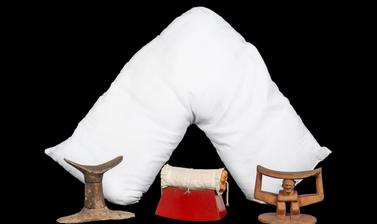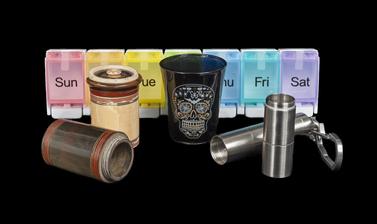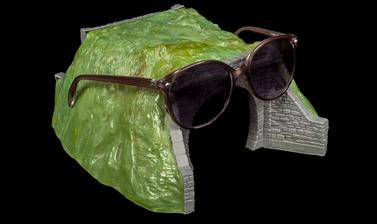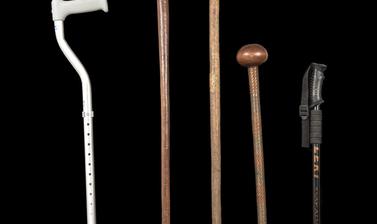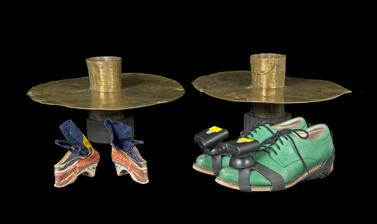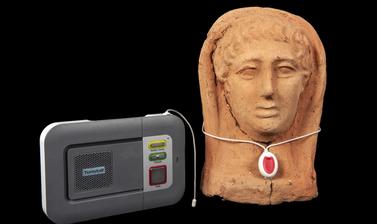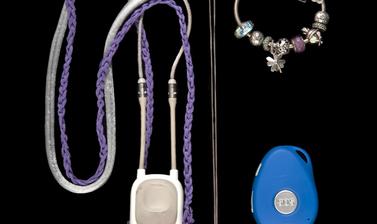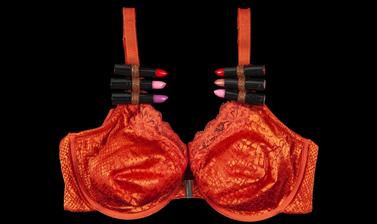Messy Futures
This photographic exhibition invites you to connect with people living with long-term health needs through co-produced images that capture their challenges, frustrations, humour and thoughtful creativity. Each photograph on display shares health technologies from across the world and from different time periods that have been developed as objects of care or have been adapted to fit our needs.
The exhibition is a collaboration between researchers, designers and people with lived experience of different health conditions. At the heart of this collaboration are the collections cared for by the Museum which provoked a response in each us, leading to a sense of equality (we all had areas of expertise) and openness (we all had lots to learn).
Our ‘Triangle of Power’ – which is the term we used to collectively refer to ourselves (whether researchers, designers or those of us with lived experiences) – pondered and wondered about what happens when health technologies insert themselves into our daily routines. How can we move from prescription to personalisation? Can we take an ‘in control by design’ approach to getting our needs met? This led to these juxtaposed images, which we hope inspire you as they reveal the joy, creativity, humour and stories of the people behind them. To illuminate both the universality of our health needs and the uniqueness of our responses, we bring together curious combinations of objects within the following themes:
Eat, Sleep, Pills, Repeat
What keeps you in sync? These technologies support us through the universal rhythms of daily life; things that take us through our cycles of eating, sleeping and caring for ourselves.
Out of Control… In Control by Design
The pandemic has brought health to the forefront of our minds. Our own health and that of our friends and family has been connected with and through our local and global communities by shared experiences. Health is central to our everyday lives; it shapes our identity and affects our daily routines. Changes in our health can mean loss and dependency. Chronic health needs can involve diagnosis, adaptation and progression. We can experience our changing needs as a cycle of being in control, losing control, regaining control, taking control. We respond to changes by adapting and taking control. The technologies we use can conceal or amplify the changes we experience as our health needs progress. We also find humour and joy in playful responses to challenging situations.
Well Protected?
Objects can reassure us by their physical presence, connecting us to our support networks in multiple ways.
Care Providers
We are all carers, testing and trialling technologies as we tinker with our health and wellbeing.
Tweak and Adapt
We have all had to adapt to new technologies. This process can be messy. Technologies have aided, monitored, befriended, isolated, frustrated and kept us balanced. We all personalise the meanings and functions of the objects we adopt. Join us in tweaking, thinking and doing differently with health and technologies.
Acknowledgements and Credits
- Messy Futures Project Team: Dr Gemma Hughes, Beth McDougall, Joy Todd, Dr Julien Carponcy, Dr Dave Bergin, Susan Diab, Suzy Prior, Jozie Kettle, Sally Bromley, Pen Keyte, Jill Grain, Ben Micklem, Dr Flavie Torrecillos, Jonathan Bromley, Phil Watson, Zena McGreevy, John Cooper, Isla Watson, Carolyn, Tony, Jean Gibbons, Sheila Jensen, Angie, Mick, Jacqui David, Jenyth, Dr Anne Ferrey, Michael Buick, Dr Sue Hinder, Phil Holsgrove, Ted Carter, Prof Trisha Greenhalgh, Dr Sara Shaw, Dr Natalie Doig, Dr Guy Yona, Dr Chrysanthi Papoutsi, Calum Mulveen, Carolina Reis, Mooad Benjaber, Prof Paul Bolam, Pamela Hutchinson-Collins, Dr Caitlin Pilbeam, Dr Joe Wherton, Dr Jennifer Lynch, Dr Christine A’Court, Gwen, Robert Toth, Parkinson’s UK Oxford, Dementia UK, Meet Me at the Museum, Rycotewood Furniture Centre, Design by Creative Jay
- Supported by the Nuffield Department of Primary Healthcare and Brain Network Dynamics Unit
